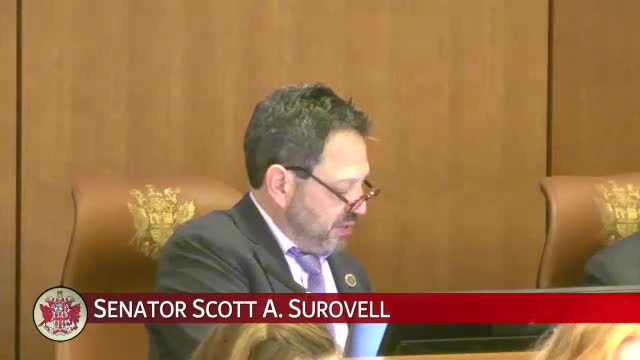Senate committee advances bill making unauthorized drone flights over defense contractors a felony
Get AI-powered insights, summaries, and transcripts
Subscribe
Summary
The Senate Courts of Justice Committee adopted a substitute and voted unanimously to report Senate Bill 757, which would make flying a drone over certain contracted defense facilities a felony and provide civil and criminal immunity for contractors who act to neutralize drones.
The Senate Courts of Justice Committee on Wednesday advanced legislation that would criminalize certain drone flights over private defense contractor facilities and give contractors legal protections to disable or remove unauthorized drones.
Senator Locke, sponsor of Senate Bill 757, told the committee the substitute clarifies which sites qualify as “contracted defense facilities” and further defines “controlled technical information” tied to federal acquisition rules. “This bill provides the tools to deter malicious drone activity and empower contractors to safeguard critical defense operations,” Locke said.
The bill would make knowingly and intentionally operating a drone over a contracted defense facility for the purpose of capturing controlled technical information a Class 4 felony, punishable by two to 10 years in prison and fines up to $100,000. The substitute also includes civil and criminal immunity for defense contractors who take reasonable actions to neutralize unauthorized drones, Locke said.
Representatives of Huntington Ingalls Industries and Newport News Shipbuilding supported the measure in committee. “Our facility is three miles long on the James River. We have at least three nuclear aircraft carriers parked at our facility right now,” said Huntington Ingalls’ corporate counsel (Mr. Pareen), describing the shipyard as conspicuous and arguing that unauthorized drone incursions there pose national security risks. Pareen noted the shipyard is not currently geofenced and said a February 2024 incident involving photography of shipbuilding processes by a Chinese national highlighted the vulnerability.
Committee members asked how operators would know when they were over a contracted defense facility and whether the bill would criminalize innocent transits. Senator Jordan and others noted that the bill’s mens rea — it applies to persons who “knowingly and intentionally” capture controlled technical information — would limit liability where a drone operator had no reason to know they were over a protected site. Senator McDougall added that the statute requires an attempt to obtain videographic evidence, and mere flight without an effort to record would not trigger the offense as drafted.
Senator Carol Foy asked whether the offense should be a lower-level felony (Class 6); Locke and other supporters defended the Class 4 designation as necessary deterrence, citing a prior criminal case in which the operator received a six-month sentence.
After committee discussion the substitute was adopted by voice vote. Senator Boisco moved and Senator Deeds seconded that the committee report Senate Bill 757 and refer it to the Finance Committee with no amendments. The roll call showed 13 ayes and 0 nays.
The bill now proceeds to the Finance Committee for further consideration.
